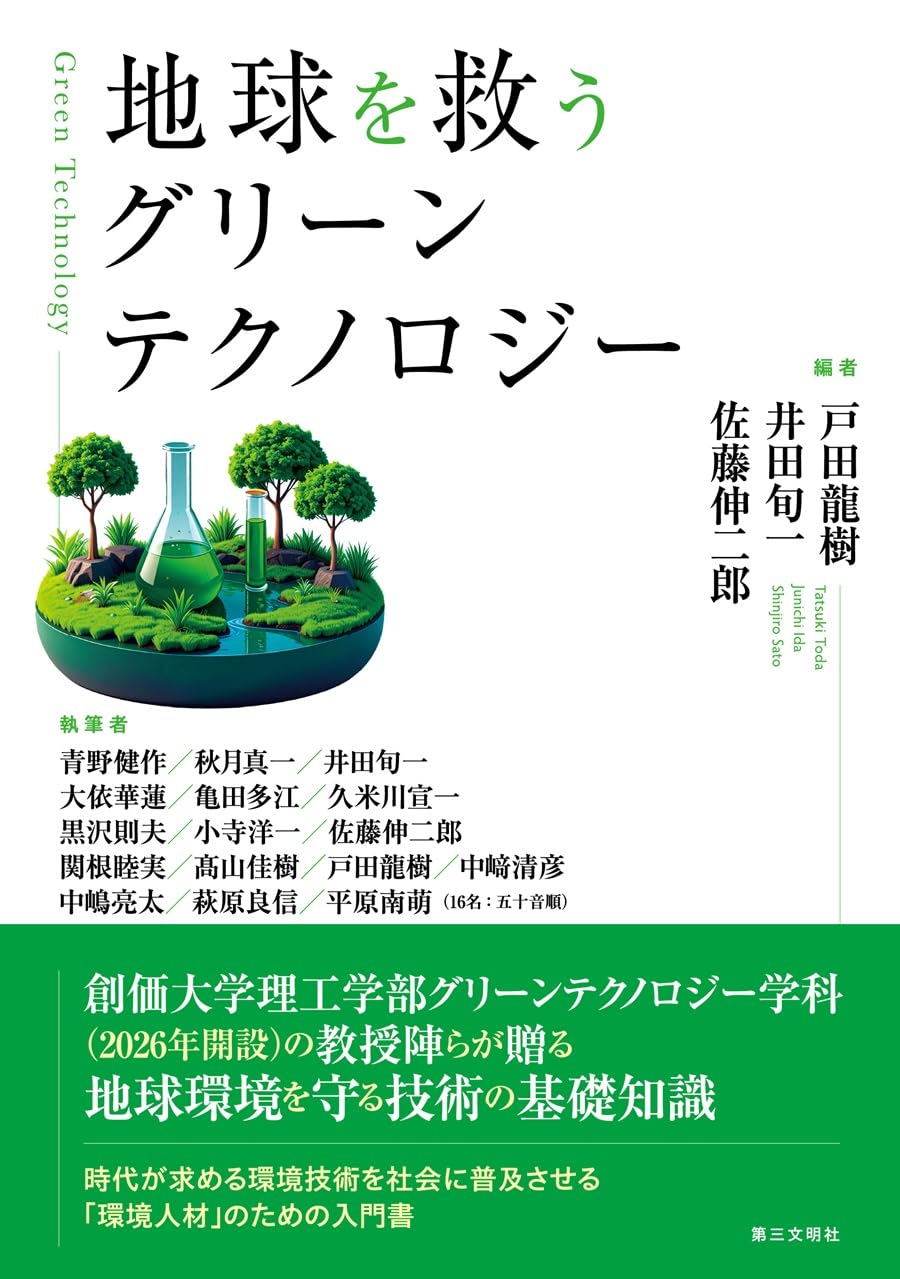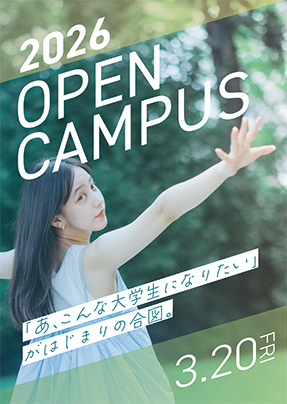"Green Technology to Save the Earth" compiled by professors of Faculty of Science and Engineering won the first place in the popularity ranking (environment and nature category)

Faculty of Science and Engineering Department of Green Technology (to open in 2026), an introductory book for "environmental human resources" written by professors, "Green Technology to Save the Earth" (edited by Tatsuki Toda, Shunichi Ida, and Shinjiro Sato, Third Civilization Publishing) was published on September 16 and ranked first in the popularity ranking of Seven Net Shopping's environment and nature category (as of October 3).
This book examines the current state and challenges of green technology as an innovative solution to global issues such as climate change, and explores the path toward realizing a sustainable society. It goes beyond simply introducing the technology and comprehensively discusses issues surrounding its implementation in society, trends in the industrial sector, and the future outlook for the planet, with content designed to foster "environmental talent." In an age where keywords like SDGs, carbon neutrality, and a decarbonized society have become commonplace, this is an extremely timely book.
The editors stated, "We hope that this book will help people understand the content of green technology and its impact on the environment and society, and that the importance of technology and its social implementation in solving global environmental problems will become more widely known in society."

Professor
Toda Tatsuki
- Specialized Field
Restoration Ecology, Aquatic Ecology, Aquatic Bioproduction Science, Water Treatment Technology and Engineering, Plankton Engineering
- Research theme
- High-rate methane fermentation and microalgae cultivation using liquid fraction derived from aquatic plant biomass
- Methane fermentation granule formation using water hyacinth juice as a substrate
- Optimization of pyrohydrolysis and steam explosion as pretreatments for methane fermentation of aquatic plants
- Optimization of mixing and structure of a non-powered mixing methane fermentation tank and evaluation of its treatment performance using fluid analysis
- Examination of ammonia fermentation conditions for methane fermentation treatment of chicken manure
- Useful substance production by microalgae through salinity acclimation
- Evaluation of the effect of adding soil extracts on microalgae cultivation
- Evaluation of the effects of CO2 supply concentration and intermittent agitation on microalgae cultivation
- Mass cultivation of microalgae using CO2 derived from biogas
- Evaluation of photosynthetic activity and growth rate of microalgae under different nitrogen supply conditions
- Studies on pigment accumulation in marine copepods

Vice President and Professor
Junichi Ida
Junichi Ida
- Specialized Field
Nanomaterials, Nanobioscience, Functional materials and devices
- Research theme
- Synthesis of thermosensitive polymers and their application to heavy metal ion recovery
- Development of amine-modified mesoporous silica membranes for carbon dioxide separation

Chair and Professor
Shinjiro Sato
- Specialized Field
Soil chemistry, soil physics, biochar, waste treatment, biomass reuse, methane fermentation digestate, tropical soil, tropical forest, plant cultivation, organic fertilizer, slow-release fertilizer, nutrient circulation, heavy metals, pollution treatment, phytoremediation
- Research theme
- Effective use of organic waste in soil for the creation of a recycling-oriented society
- Soil improvement effect and crop production by biochar
- Fertilization of crops using methane fermentation digestate - Tropical Soil Conservation
- Effective use of organic waste in soil for the creation of a recycling-oriented society


